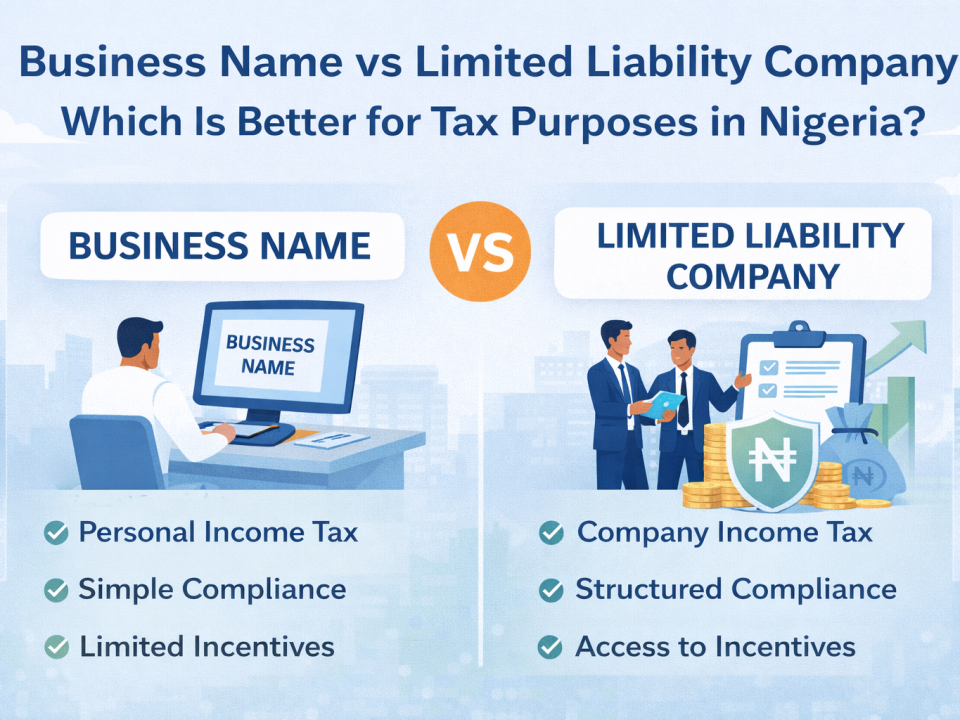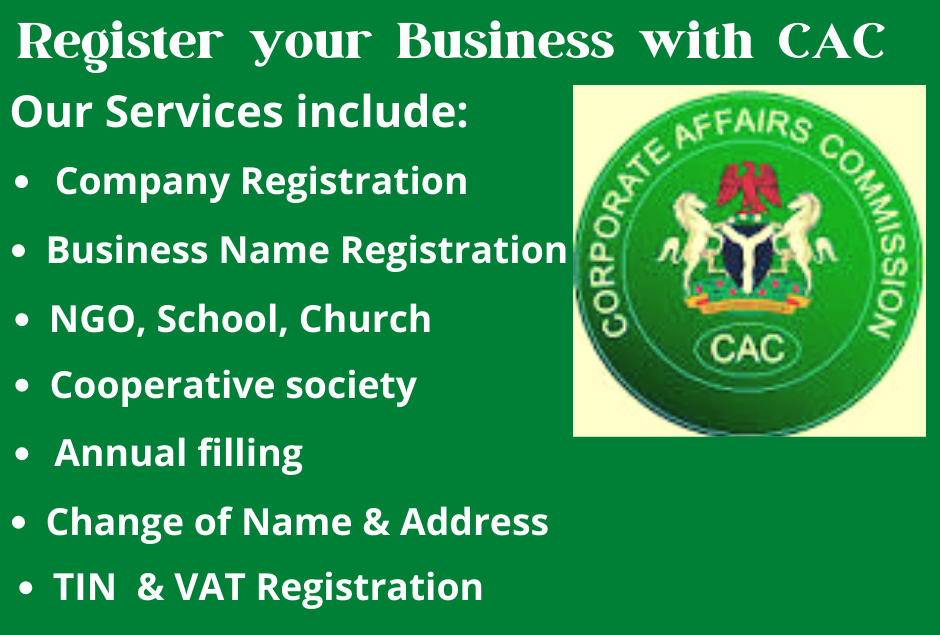
Who is Eligible for TIN in Nigeria? — Everything You Need to Know
October 27, 2025
Understanding the 2025 Nigeria Tax Act: What Every Small Business Owner Must Know
November 7, 2025Do you want to know what are the Legal Procedures to Set Up a Business in Nigeria?
Are you ready to turn your business idea into reality, but are not sure where to start?
Setting up a business in Nigeria requires following specific legal procedures to ensure compliance, legitimacy, and smooth operations.
Whether you’re launching a small enterprise or a large company, understanding the right steps can save you time, money, and future headaches.
In this guide, we’ll walk you through the legal procedures to set up a business in Nigeria, from registration to compliance.
Discover how to register a business name with CAC in Nigeria.
What are the Legal Procedures to Set Up a Business in Nigeria?
The Legal Procedures to Set Up a Business in Nigeria are as follows:
1. Choose Your Business Structure
The first step is deciding on the right business structure. Your choice affects ownership, taxation, and compliance obligations.
In Nigeria, the main options include:
- Business Name (Enterprise or Sole Proprietorship) – Best for small businesses and startups.
- Limited Liability Company (LLC) – Suitable for businesses seeking to limit owners’ liability.
- Public Limited Company (PLC) – Ideal for larger corporations with multiple shareholders.
- Incorporated Trustees (NGOs, religious or social organizations)
Each structure has unique requirements, so seek expert advice before registering.
2. Register with the Corporate Affairs Commission (CAC)
Once you’ve decided on your structure, you must register your business with the Corporate Affairs Commission (CAC) — the official body responsible for business registration in Nigeria.

Quick & Fast Business Registration
Steps include:
- Name reservation via the CAC online portal.
- Completing the registration form with company details and ownership structure.
- Uploading necessary documents (ID, signatures, and address proof).
- Payment of registration fees.
Upon approval, you’ll receive your Certificate of Incorporation and CAC Registration Number — your business’s legal identity.
You can check out CAC Business Registration in Nigeria: Everything You Need to Know
3. Obtain a Tax Identification Number (TIN)
Next, apply for a Tax Identification Number (TIN) with the Federal Inland Revenue Service (FIRS). Discover Who is Eligible for TIN in Nigeria?
This step is essential for tax filing, opening a corporate bank account, and issuing legally valid receipts.
Learn more about How to Register for a Tax Identification Number in Nigeria — Step-by-Step Guide
You can apply online or through your state tax office.
For employers, registering for PAYE (Pay As You Earn) and Value Added Tax (VAT) is also required.
4. Register with Relevant Regulatory Bodies
Depending on your industry, you may need to register with specific regulatory agencies to operate legally. For example:
- NAFDAC – For food, drugs, or cosmetic products.
- SON (Standards Organization of Nigeria) – For manufacturing and imports.
- CBN (Central Bank of Nigeria) – For financial service providers.
- COREN, NITDA, NCC, and others for professional sectors.
Failing to register with the right agencies can lead to penalties or business closure.
5. Open a Corporate Bank Account
A corporate bank account separates your personal and business finances, improves transparency, and builds credibility with clients.
To open one, you’ll typically need:
- CAC Certificate of Incorporation
- TIN
- Board Resolution (for companies)
- Valid ID and utility bill
6. Register for Business Permits and Licenses
Depending on your location and business type, you may need additional permits or local government licenses.
For example:
- Trade permits
- Business premises registration
- Environmental permits
These ensure your business operates within the law and community standards.
7. Comply with Employment and Pension Laws
If you have employees, ensure compliance with labour laws by registering with:
- National Social Insurance Trust Fund (NSITF)
- Pension Commission (PENCOM)
- Industrial Training Fund (ITF)
This protects both your employees and your company from legal liabilities.
8. Maintain Proper Accounting and Record-Keeping
Once your business is set up, maintain accurate financial records. This includes bookkeeping, tax filings, and annual returns to the CAC.
Hiring an expert or using cloud accounting tools can help you stay compliant and organized.
Learn more about the Expert Bookkeeping Services in Nigeria: Why Your Business Needs Professional Bookkeeping.
Conclusion: What Are the Legal Procedures to Set Up a Business in Nigeria?
Setting up a business in Nigeria the right way may seem complex, but with the right guidance, it becomes straightforward. Following the legal procedures to set up a company in Nigeria not only legitimizes your operations but also positions your brand for growth and investor confidence.
At Skypro Professional Services, we specialize in helping entrepreneurs like you register, structure, and grow their businesses with full legal compliance.
Ready to start your business the right way?
Contact Skypro Professional Services today for expert help with:
- CAC registration
- Tax compliance
- Accounting setup
- Business advisory
Visit: https://skyproservices.com.ng
Call/WhatsApp: +234 9064646156
Download our FREE “Business Setup Compliance Checklist” to make sure you don’t miss any step!




